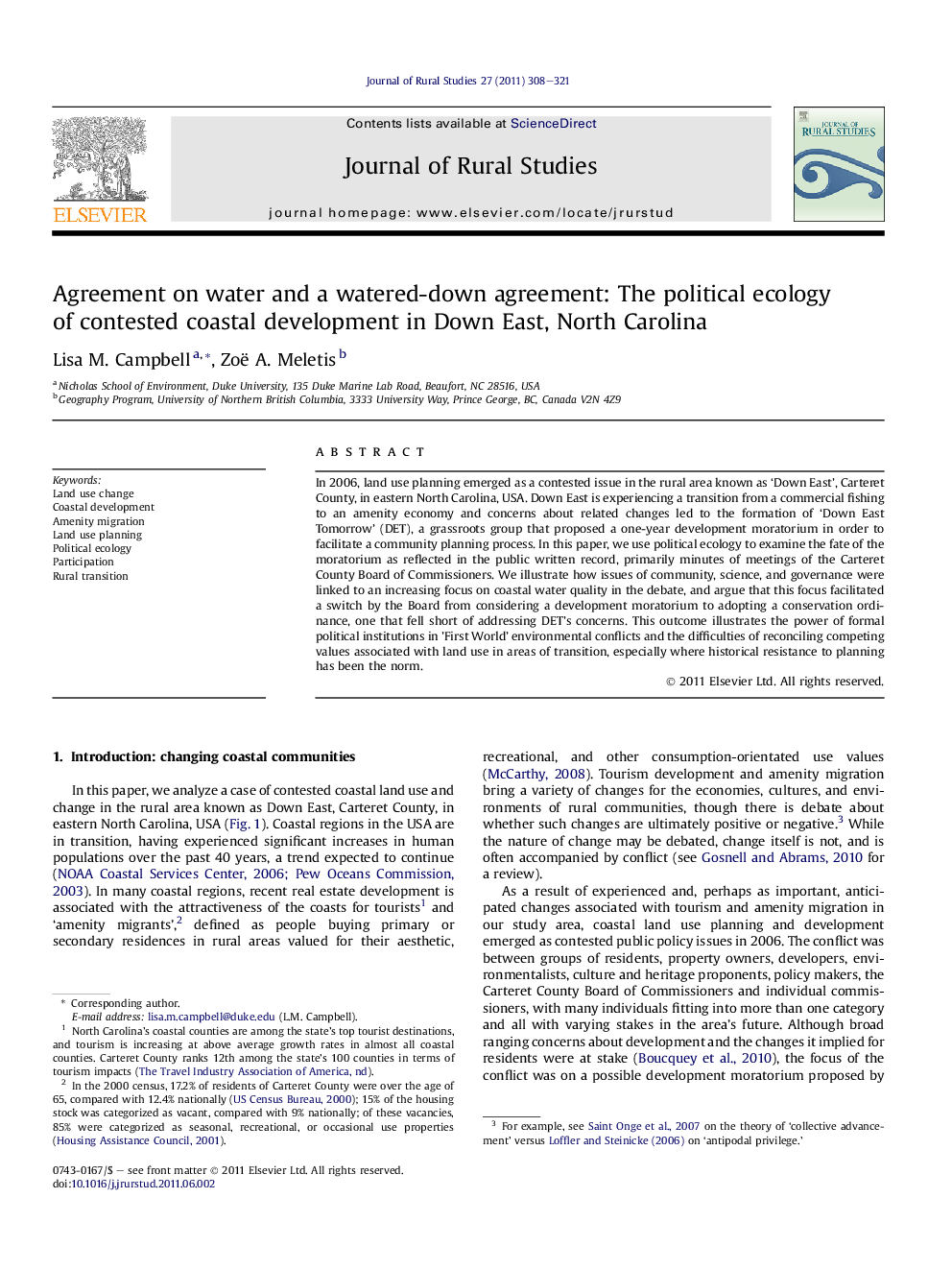| Article ID | Journal | Published Year | Pages | File Type |
|---|---|---|---|---|
| 92531 | Journal of Rural Studies | 2011 | 14 Pages |
In 2006, land use planning emerged as a contested issue in the rural area known as ‘Down East’, Carteret County, in eastern North Carolina, USA. Down East is experiencing a transition from a commercial fishing to an amenity economy and concerns about related changes led to the formation of ‘Down East Tomorrow’ (DET), a grassroots group that proposed a one-year development moratorium in order to facilitate a community planning process. In this paper, we use political ecology to examine the fate of the moratorium as reflected in the public written record, primarily minutes of meetings of the Carteret County Board of Commissioners. We illustrate how issues of community, science, and governance were linked to an increasing focus on coastal water quality in the debate, and argue that this focus facilitated a switch by the Board from considering a development moratorium to adopting a conservation ordinance, one that fell short of addressing DET’s concerns. This outcome illustrates the power of formal political institutions in ’First World’ environmental conflicts and the difficulties of reconciling competing values associated with land use in areas of transition, especially where historical resistance to planning has been the norm.
► Community engages county government to address concerns about land use change. ► Coastal water quality proves more governable than other community concerns. ► Political ecology illustrates links between nature of resource and means of governance.
